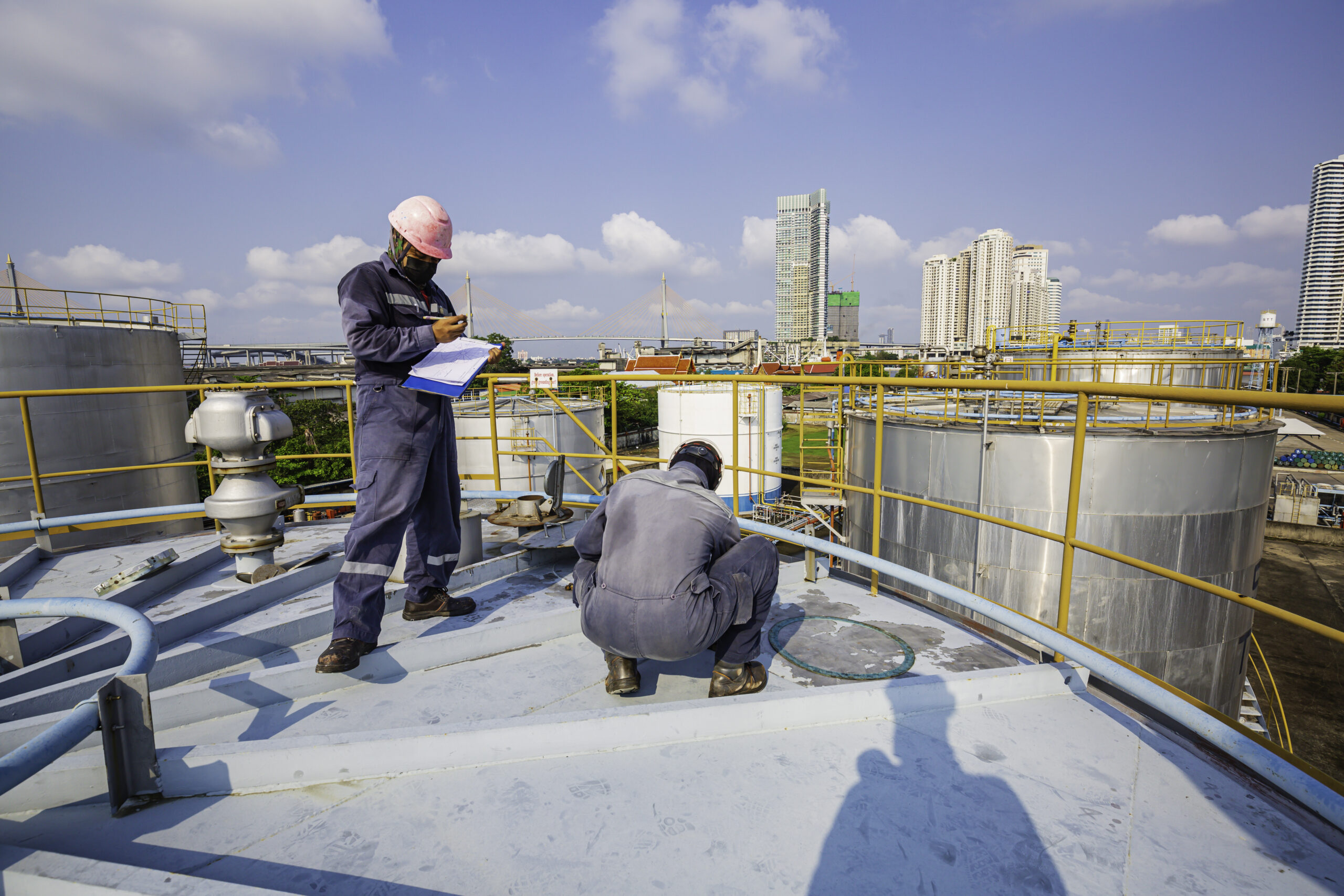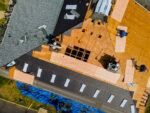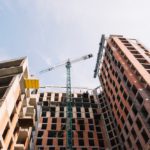Residential Roof Inspections New York: Why is It Essential?
Roofs are often overlooked, yet they are one of the most vital components of any building. They shield us from the elements, provide insulation, and ensure the safety and comfort of those inside. However, many property owners underestimate the significance of regular residential roof inspections New York. In this comprehensive guide, we will delve into why roof inspection is so important and why it should be a priority for every responsible property owner.
Roof Inspections: What Does It Mean?
In fact, a roof inspection is a systematic evaluation of a roof’s condition conducted by a qualified professional. It involves a comprehensive examination of both the interior and exterior components of the roof to identify any existing or potential issues. The primary purpose of a roof inspection is to ensure the structural integrity of the roof, identify any areas of concern, and provide recommendations for repairs or maintenance.
The Importance of Hiring a Professional Roof Inspector:
Firstly, while property owners can visually inspect their roofs to some extent, hiring a professional roofing inspector is highly recommended. Professional inspectors have the expertise, knowledge, and experience to thoroughly assess the roof, detect hidden problems, and provide accurate evaluations. Secondly, they are trained to identify even minor issues that an untrained eye might overlook. By engaging professional roofing inspectors, property owners can have peace of mind knowing that experts are examining their roofs.
Types of Roofs That Require Regular Inspections:
Roof inspections are essential for various types of buildings, including residential, commercial, and industrial structures. Regardless of the roof’s material or design, regular inspections are necessary to ensure optimal performance and longevity.
Residential roofs, such as asphalt shingle roofs, require inspections to detect leaks, damaged shingles, or deteriorating flashing. Commercial and industrial roofs, including flat roofs or those made of metal, require inspections to identify issues like membrane damage, ponding water, or corrosion. Each type of roof has its unique vulnerabilities, making regular inspections crucial for early problem detection and appropriate maintenance.
Common Issues Detected During Roof Inspections:
A variety of issues can be detected during roof inspections, including:
A. Leaks and Water Damage-
One of the most common issues found during roof inspections is leaks and water damage. Roof leaks can occur due to damaged or deteriorating shingles, flashing, or sealants. Inspections help identify areas where water penetration is present or likely to occur, allowing property owners to address the source of the leaks and prevent further water damage to the roof structure and interior of the building.
B. Damaged or Missing Shingles/Tiles-
Roofing materials such as shingles or tiles can become damaged or dislodged over time due to weather exposure, age, or improper installation. During inspections, roof inspectors carefully examine the condition of the shingles or tiles to identify any cracks, curling, missing pieces, or signs of deterioration. Prompt repair or replacement of damaged or missing roofing materials is crucial to maintain the roof’s integrity and prevent water infiltration.
C. Cracked or Deteriorating Roof Flashing-
Flashing is a protective component installed around roof penetrations and junctions to prevent water from seeping into vulnerable areas. Over time, flashing can develop cracks, become corroded, or lose its sealant. Inspections help identify any issues with roof flashing, ensuring that it remains watertight and effectively protects against water intrusion.
D. Improper Installation or Poor Workmanship-
In some cases, roofs may have been improperly installed or suffer from poor workmanship. During inspections, these issues can be identified through visual cues such as uneven or sagging areas, improper fastening, or inadequate ventilation. Addressing these installation or workmanship deficiencies is crucial to prevent further damage and ensure the long-term performance of the roof.
E. Mold, Algae, or Moss Growth-
Moisture and shade can create favorable conditions for the growth of mold, algae, or moss on the roof surface. Inspections help detect the presence of these biological organisms, which can not only compromise the aesthetics of the roof but also lead to accelerated deterioration of roofing materials. Proper cleaning and treatment can be recommended to mitigate their growth and preserve the roof’s condition.
F. Structural Damage Caused by Storms or Other External Factors-
Severe weather events such as storms, heavy winds, hail, or fallen debris can cause structural damage to roofs. Inspections following such events help identify any visible signs of damage, including dented or cracked roofing materials, compromised structural integrity, or loose components. Timely repairs or replacements are crucial to restore the roof’s functionality and prevent further damage.
Why Are Regular Roof Inspections Important?
There are various reasons why you should regularly conduct roof inspections. Here are a few of those:
1. Identifying and Addressing Minor Issues Before They Escalate-
Regular roof inspections enable the early detection of minor issues such as cracked shingles, damaged flashing, or small leaks. By identifying these problems at an early stage, property owners can address them promptly before they worsen and cause significant damage. Timely repairs can prevent water infiltration, structural damage, and potential mold or mildew growth, saving property owners from costly repairs or even premature roof replacement.
2. Extending the Lifespan of the Roof-
Roofs are subjected to constant exposure to weather elements, UV radiation, and other environmental factors that can cause wear and tear over time. Through regular inspections, property owners can identify areas of the roof that require maintenance or repairs. By promptly addressing these issues, the overall lifespan of the roof can be extended, maximizing its durability and performance.
3. Preserving the Value of the Property-
The roof is an integral part of a property’s structure and curb appeal. A well-maintained roof enhances the aesthetic value of the property and contributes to its overall market value. Regular inspections and subsequent maintenance or repairs help preserve the roof’s condition, ensuring that the property retains its value and remains attractive to potential buyers or tenants.
4. Mitigating Risks of Costly Repairs or Replacements-
Neglecting roof inspections can lead to undetected damage that progressively worsens over time. Delaying necessary repairs or maintenance can result in more extensive damage, requiring expensive repairs or even complete roof replacements. Regular inspections help property owners identify and address issues early on, minimizing the risk of major and costly repairs or replacements down the line.
5. Ensuring the Safety of Occupants-
A well-maintained roof provides a safe environment for the occupants of a building. Regular inspections help identify potential hazards such as weakened structures, loose materials, or compromised integrity due to weather events. By addressing these issues promptly, property owners can ensure the safety and well-being of everyone within the building.
How Often Should You Have a Roof Inspection?
The frequency of roof inspections depends on several factors, including the age of the roof, its material, and the prevailing weather conditions in the area. As a general guideline, it is recommended to have a professional roof inspection conducted at least once a year. This annual inspection allows for the timely detection of any issues that may have developed over the course of the year and ensures that the roof remains in good condition.
It’s important to note that in regions with extreme weather conditions or frequent storms, more frequent inspections may be necessary. Additionally, roofs that are older or have a history of issues may benefit from semi-annual inspections to catch problems early.
Roofing Inspections: Takeaway
In conclusion, regular roof inspections are of utmost importance for any property owner. From addressing minor issues to extending the lifespan of the roof, preserving property value, and ensuring occupant safety, the benefits of roof inspections are numerous. Investing in professional roofers in new york and timely repairs or maintenance is a proactive approach that saves property owners from costly repairs and provides long-term peace of mind. By prioritizing roof inspections, property owners can protect their investments and enjoy the comfort and security of a well-maintained roof for years to come.



